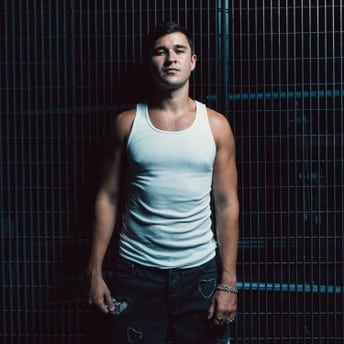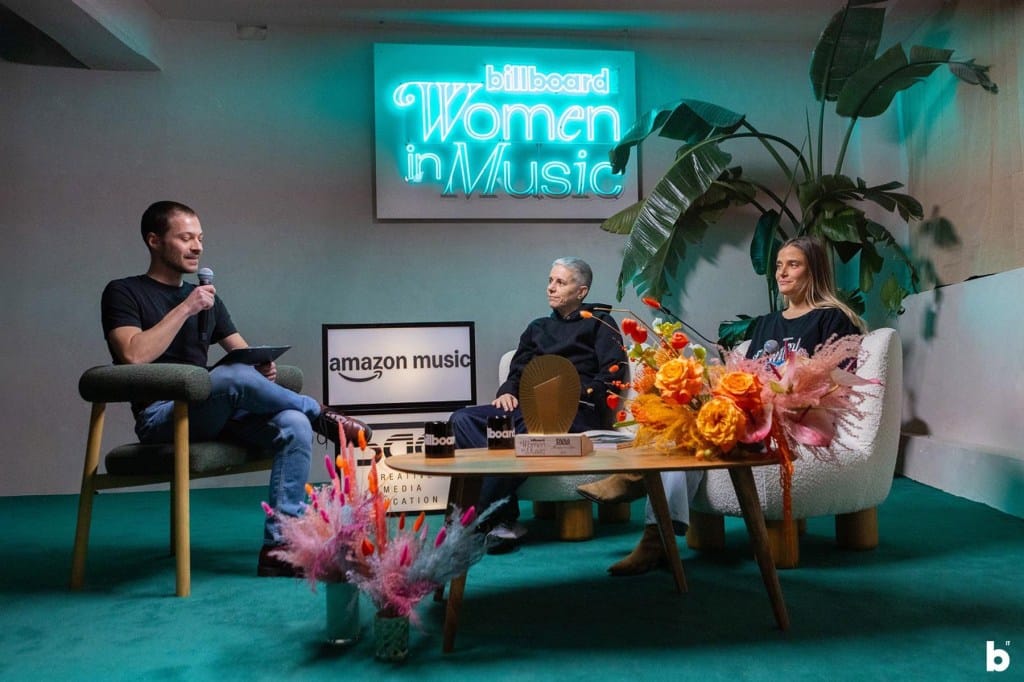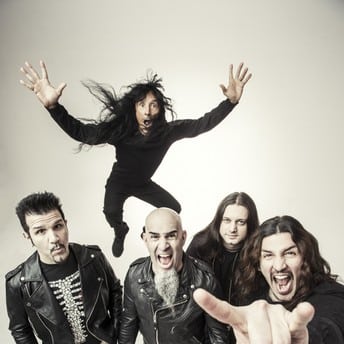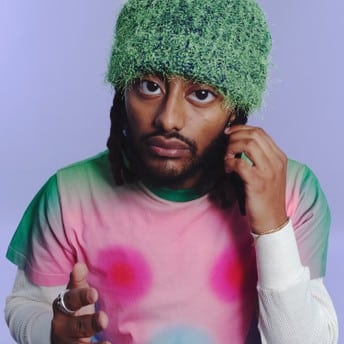Global
Trending on Billboard
Parkway Drive’s planned Park Waves Festival — the band’s first-ever touring festival in Australia — will no longer go ahead.
Organisers Destroy All Lines confirmed the cancellation, posting a statement across social media explaining that the numbers behind the ambitious run “no longer stack up.”
“We’re devastated to confirm the Park Waves Festival Australian tour will not go ahead,” the statement read. “The cancellation is due to a combination of challenges, and ultimately, the numbers no longer stack up. With a heavy heart, we’ve had to make a difficult decision. We’ve tried everything. We’re gutted.”
Explore
See latest videos, charts and news
The festival was scheduled to take place across February and March 2026, with stops in Perth, Adelaide, Geelong, Scoresby, Bendigo, Wollongong, Sydney, Maitland, Toowoomba, Byron Bay and Sandstone Point. Ticket holders will automatically receive refunds, with organisers confirming additional details will be emailed directly.
In a separate statement posted to their own channels, Parkway Drive described the decision as “a kick in the guts,” noting the increasingly difficult landscape for major touring events in Australia.
“Another festival being crushed by the rising costs across our entertainment industry,” the band wrote. “It hurts to be another casualty in this chapter of the Australian music scene. We’ve tried every possible option to keep this dream alive, but the reality of the circumstances won’t allow for it.”
Park Waves originally launched in Germany in 2024, where Parkway Drive headlined alongside Fit for a King and Australian heavyweights Thy Art Is Murder. The Australian edition was intended to bring that model home, with the band emphasising their desire to reach regional audiences that often miss out on arena-level tours.
Speaking with Rolling Stone AU/NZ earlier this year, vocalist Winston McCall said the concept had been years in the making. “Being able to take it regional is really important,” he explained. “This is the first Byron show we’ve been able to play in 12 years… If you don’t have an entertainment centre, you’re playing a 1000-cap club and thousands of people are missing out.”
The cancellation follows a milestone era for Parkway Drive, who performed a widely praised, career-defining show at the Sydney Opera House in 2023 and released their single “Sacred,” their first new music since 2022’s Darker Still. Park Waves was expected to be the band’s major domestic live moment for 2026.
Destroy All Lines closed their statement by thanking fans who purchased tickets and continue to support Australian live music during a turbulent period for promoters and touring artists alike.
Trending on Billboard
LIV Golf Adelaide has locked in global DJ and producer John Summit as the Saturday headliner for its 2026 tournament, adding another major name to the event’s expanding live music program.
Explore
See latest videos, charts and news
Summit will perform Feb. 14 at 7 p.m. following round three at The Grange Golf Club. The Miami-based artist — who has earned two No. 1 hits on the U.S. Dance Radio chart and multiple Top 10 entries on Billboard’s Hot Dance/Electronic Songs chart — brings his explosive live show to Australia for one of his few local appearances next year. His set is expected to feature fan favorites including “Where You Are” and “Shiver.”
The announcement rounds out a four-day entertainment lineup that already includes Peking Duk, Royel Otis and FISHER. Canberra duo Peking Duk will kick off the music program on Thursday, Feb. 12, performing directly after the opening round with a set that includes their breakout hits “High” and “Stranger,” along with new material. Royel Otis headlines Friday, while FISHER returns Sunday to close out the tournament.
All concerts are included in daily Grounds Pass and hospitality tickets, meaning fans attending Thursday and Saturday events will automatically have access to the live performances. Limited tickets remain available at LIVGolf.com, including Grounds Plus and select premium hospitality packages in the Barossa, Birdie Shack and Ripper Point areas.
For the first time, Summit’s Saturday set will also be streamed internationally on the LIV Golf YouTube channel, part of the league’s push to expand its global fan base.
“LIV Golf is known for bringing world-class DJs and musicians to Adelaide, and we are ecstatic to welcome John Summit this February,” said Ross Hallett, LIV Golf’s executive vice president and head of events. “His high-energy performances perfectly complement the vibe of LIV Golf.”
South Australian premier Peter Malinauskas added that hosting Summit “sets a new benchmark” for the state’s live entertainment offerings, noting that three of the four headlining acts next year are home-grown Australian artists.
Since launching in 2022, LIV Golf has woven live music into the fabric of its tournament experience, hosting more than 30 concerts in 2025 alone — a number expected to climb to 40 in 2026.
Trending on Billboard
The second edition of Billboard Italia Women in Music took place on Nov. 25, 26 and 28 in Milan, at the new cultural hub called UFO, home to Billboard Italy’s headquarters, which for the occasion transformed into the Women in Music House.
Following the inaugural 2024 edition, which highlighted women’s contributions to Italian music and culture, the 2025 event offered an even richer and more comprehensive program, including exhibitions, workshops, panels, showcases and DJ sets, confirming its vocation as a space dedicated to creativity, plurality of artistic voices, and construction of new cultural perspectives.
Federico Durante and Silvia Danielli, editor-in-chief and co-editor-in-chief of Billboard Italy, said: “This edition, the main theme of which was “Intersections,” gave even more space to the honorees by connecting them with other personalities from other fields of contemporary culture. It put new talent in the spotlight, highlighting new ideas that increasingly emphasize the women who work behind the scenes of the music industry.”
The big star of Billboard Italia Women in Music 2025 was Giorgia, awarded as Woman of the Year, who met with TV host and writer Serena Dandini. With a career spanning several generations of fans with authenticity and depth, Giorgia was the symbolic centerpiece of the 2025 edition. The other awards were:
Global Icon – Laura Pausini
Powerhouse – Serena Brancale
DJ of the Year – Deborah De Luca
Rising Star – Sarah Toscano
Songwriter of the Year – Joan Thiele
Performer of the Year – Emma Nolde
Breakthrough – Ele A
Manager of the Year – Paola Zukar
Over the course of three days, the honorees participated in a series of conversations with leading figures in contemporary culture, from sports to social media, resulting in a series of events that will be published on YouTube and on Billboard Italy’s Instagram and TikTok profiles.
Aperol, Amazon Music and AW LAB were Official Partners of Billboard Italia Women in Music 2025. Ticketmaster was the Ticketing Partner, and SAE Institute was the Educational Partner. The event was supported by SIAE – Società Italiana degli Autori ed Editori.
Here are some of the best photos from Billboard Italia Women in Music 2025.
Trending on Billboard
Credo Holdings Co., Ltd., a hospitality company (Shinjuku-ku, Tokyo; CEO: Koichi Shirai), opened “Billboard Live TAIPEI” on the seventh floor of “ATT 4 FUN” in Taipei’s Xinyi District on Nov. 18, 2025. The opening performances were headlined by Mika Nakashima, with all four stages across two shows completely sold out. She also took part in the venue’s opening ceremony and ribbon-cutting, organized by the group company Taiwan Credo Entertainment.
Explore
See latest videos, charts and news
“Billboard Live TAIPEI” held its opening ceremony on Nov. 18. The ceremony featured opening artist Mika Nakashima, Masato Kitaguchi, Executive Producer of Billboard Live TAIPEI and Credo CEO Koichi Shirai.
In addition to the ribbon-cutting, commemorative gifts were presented. Mika Nakashima commented, “It is a great honor to be invited to perform the very first show at this memorable venue.” Shirai gifted her with “Kaki (Persimmon),” a glass art piece by Ruri Kobo, explaining, “The word “Kaki” (柿 – persimmon) shares the same pronunciation as “Kaki”‘嘉来 – good fortune to come.’ We chose this piece as a wish for continued good luck and harmony for her.”
During the opening performance, Mika Nakashima stepped onto the stage barefoot and offered a deep bow. She greeted the audience in Chinese—“大家好,我是中島美嘉(Hello everyone, I’m Mika Nakashima!)”—which immediately brought the venue to an eruption of cheers, marking a brilliant and fitting opening for Billboard Live TAIPEI. The show began gently with her signature song “Hanataba,” followed by a series of beloved hits including “Sakura-iro Mau Koro,” “Glamorous Sky” and “Love is Ecstasy.”
Between songs, she commented on the dishes served at the tables, chatted with guests in the front rows, and exchanged high-five moments with fans—fully enjoying the intimate atmosphere that only Billboard Live TAIPEI can offer, where the stage and audience are uniquely close. One guest commented, “I can’t believe I was able to see Mika Nakashima this close—this was truly the best performance of my life, something I will never forget. The food and drinks were also excellent.”
At Billboard Live TAIPEI, the cuisine is supervised by Chef Yoshifumi Kishigami, a French chef with 35 years of experience in Japanese hotel restaurants, while the alcohol program is overseen by Mr. Hsu Chen-Hsuan, champion of the Suntory Cocktail Competition in Taiwan. Together, they ensure that the venue delivers top-quality experiences in both music and dining. “Billboard Live TAIPEI” is set to host a diverse lineup of international performances, featuring artists such as Nathan East, Vivian Hsu (Xu Ruo Xuan), Do As Infinity, Sunwoo Jung-a (鮮于貞娥), Joanna Wang (王若琳), Andrew Chen (陳勢安) and Eric Martin (Mr. Big), among many others.
Trending on Billboard
Hayley Williams is drawing a firm boundary ahead of her 2026 solo tour. The Paramore frontwoman, who recently announced an expanded run of dates due to high demand, said she intends her shows to be explicitly inclusive spaces — and made clear that anyone who holds discriminatory views should not expect to feel comfortable attending.
Explore
See latest videos, charts and news
In a new interview with Clash, Williams said she wants the tour to be a place where every fan can “feel welcome to the party,” but added that this commitment also requires her to take a public stance about who she does not want in the room.
“I don’t want racists around, and I don’t want sexist people around, and I don’t want people there who think that trans people are a burden,” she said. “I think that’s a hard line for me now.”
Williams explained that she hopes anyone holding those beliefs will “walk in the door and realise that the gang’s all here, all banded together around something positive,” adding: “All are welcome if you believe all should be welcome… If you don’t believe that, you’re not welcome.”
Her upcoming tour — which supports her latest solo album, Ego Death at a Bachelorette Party — The North American leg kicks off on March 28 in Atlanta and willl include stops in Toronto, Boston, Philadelphia, New York, Chicago, Nashville, Austin, Oakland, Los Angeles, and more, before she hits the UK and Europe in June next year.
Williams has long used her platform to advocate for equality, particularly in her home state of Tennessee. Last year, after declining an official state honor, she criticised the actions of the state’s Republican leadership, calling out what she described as “blatant racism” and encouraging young people to vote with equality in mind.
The singer has also spoken openly about the sexism she has faced throughout her career. In 2022, she said she avoided playing guitar on stage because of the likelihood of derisive comments, and in 2023 she addressed online backlash after postponing Paramore shows due to illness, calling out “internet bros” and clarifying that most rock bands would not co-sign that behaviour.
Trending on Billboard
The Wiggles have issued a statement after a TikTok video featuring the children’s entertainment group and Keli Holiday — the solo project of Peking Duk’s Adam Hyde — was removed from social media following complaints from parents.
Explore
See latest videos, charts and news
The since-deleted clip, first reported by News.com.au, showed Blue Wiggle Anthony Field and his nephew Dominic Field (who portrays The Tree of Wisdom) dancing behind Holiday as he promoted his new single “Ecstasy.” The chorus of the track includes the lyric: “Hey girl, come on, dance with me / You and your pocket full of ecstasy,” prompting criticism from viewers who felt the pairing blurred the line between children’s entertainment and adult-coded content.
The video was posted shortly after Holiday appeared onstage with the pair at the 2025 TikTok Awards on Nov. 26, where The Wiggles joined him for a performance of his single “Dancing2.” Anthony played the bagpipes during the set while Dominic performed his signature dance alongside Holiday’s partner, broadcaster Abbie Chatfield.
After the TikTok clip began circulating, a spokesperson for The Wiggles told The West Australian that the group “does not support or condone the use of drugs in any form,” emphasizing that the video was created without their approval.
“We understand that a video circulating on social media has caused concern for many parents and professionals, and we want to address that directly,” the spokesperson said. “The Wiggles do not support or condone the use of drugs in any form. The content being shared was not created or approved by us, and we have asked for it to be removed.”
The statement clarified that while Holiday is a longtime friend of the group, the music added to the clip was edited in after their TikTok Awards appearance. “While Keli Holiday (Adam Hyde) is a friend of The Wiggles, the video and the music added to it were created independently and without our knowledge,” the spokesperson continued. “Our performance at the TikTok Awards was family-friendly and fun, and this video was edited together separately and without our awareness.”
The group ended by reaffirming their commitment to families: “We deeply value the confidence families place in us and we remain committed to creating safe, positive, and educational experiences for children and families in Australia and around the world.”
Holiday released “Ecstasy” earlier this month, describing the track as a spontaneous idea that took shape during sessions with Golden Features and Belgian singer Romanie, before finalising the song with producer Konstantin Kersting.
Trending on Billboard
INI’s “Present” soars to No. 1. on this week’s Billboard Japan Hot 100, on the chart dated Nov. 26, halting Kenshi Yonezu’s nine-week reign over the tally.
“Present” serves as the lead track off INI’s new single THE WINTER MAGIC, released Nov. 19. The CD launched with 1,213,001 copies to become the eleven-member boy band’s first million seller, and moved 15,230 downloads to rule the metric. It also hits No. 2 for radio airplay, No. 44 for streaming, and No. 80 for video views. The group earns its fifth No. 1 hit with “Present,” following “CALL 119,” “Password,” “LOUD,” and “WMDA (Where My Drums At).”
Explore
See latest videos, charts and news
Kenshi Yonezu’s “IRIS OUT” slips to No. 2 after dominating the Japan Hot 100 for the past nine weeks. Though it falls a notch on the list, the Chainsaw Man – The Movie: Reze Arc theme continues to hold atop the streaming and video tallies for the tenth straight week since its debut, and extends its streak on karaoke to seven weeks.
Four tracks from the RADWIMPS tribute album Dear Jubilee -RADWIMPS TRIBUTE- land inside the top 10: Mrs. GREEN APPLE’s “Kyoshinsho” at No. 4, Vaundy’s “Zenzenzense” at No. 5, Kenshi Yonezu’s “Tremolo” at No. 6, and My Hair is Bad’s “Iindesuka?” at No. 7. 13 of the album’s 14 tracks have entered the chart. The original songs by the band are also resurging, with titles such as “Sokkenai,” “Kaishin no Ichigeki,” “Kyoshinsho,” and “Iindesuka?” rising primarily on streaming.
Meanwhile, Gen Hoshino’s “Ikidomari” jumps 22-8 this week, boosted by radio (up 773% from last week) and streaming (up 142%).
The Billboard Japan Hot 100 combines physical and digital sales, audio streams, radio airplay, video views and karaoke data.
See the full Billboard Japan Hot 100 chart, tallying the week from Nov. 17 to 23, here. For more on Japanese music and charts, visit Billboard Japan’s English X account.
Trending on Billboard
Anthrax will return to Australia in March 2026 for four shows across Brisbane, Adelaide, Melbourne and Sydney, Live Nation announced Tuesday.
The run marks the thrash-metal veterans’ first Australian headline tour since 2019, extending a global touring period that has seen the band revisit material spanning more than four decades.
Hailing from New York and widely regarded as one of the “Big Four” of thrash alongside Metallica, Slayer and Megadeth, Anthrax have sold more than 10 million albums worldwide and remain one of heavy music’s most enduring live acts. Their 2026 Australian dates will feature a career-spanning setlist mixing fan favorites, deep cuts and selections from the band’s more recent catalog as they continue celebrating their legacy on the road.
Explore
See latest videos, charts and news
According to the announcement, the tour will kick off March 23 at Fortitude Music Hall in Brisbane before moving through Adelaide’s Hindley Street Music Hall on March 25 and Melbourne’s Festival Hall on March 26. The run will wrap March 28 at Enmore Theatre in Sydney. It marks the group’s return to all four cities after several years of international touring and festival performances.
Tickets go on sale Nov. 28 at 11 a.m. local time. A Mastercard presale runs Nov. 26 from 11 a.m. until Nov. 28 at 10 a.m., with additional Live Nation presale access beginning Nov. 27 at 11 a.m. and concluding Nov. 28 at 10 a.m. All times are local.
Anthrax has also finished mixing its forthcoming studio album, marking the band’s first full-length release in nearly a decade following 2016’s For All Kings, with drummer Charlie Benante confirming the milestone via Instagram on Nov. 24.
Key recording sessions and all final mixing took place at Dave Grohl’s Studio 606 in Northridge, California — a space long associated with major hard-rock productions. The band reunited with producer Jay Ruston, who previously oversaw For All Kings and 2011’s Worship Music, bringing continuity to the project as Anthrax enters its next era.
More information is available at livenation.com.au.
Anthrax Australian Tour dates:
March 23 – Fortitude Music Hall, BrisbaneMarch 25 – Hindley Street Music Hall, AdelaideMarch 26 – Festival Hall, MelbourneMarch 28 – Enmore Theatre, Sydney
Trending on Billboard
Aminé is bringing his Tour de Dance world tour to Australia in early 2026, confirming a four-show run across Sydney, Brisbane, Melbourne and Perth.
The dates extend a touring cycle that has already taken the Portland rapper through more than 40 shows across the United States, the United Kingdom and Europe behind his latest album, 13 Months of Sunshine.
Explore
See latest videos, charts and news
The album, released earlier this year, marked Aminé’s first solo full-length since 2020’s Limbo and arrived after Kaytraminé, his 2023 collaborative project with Kaytranada. 13 Months of Sunshine saw the rapper take a more introspective turn, weaving themes of heritage, grief, identity and growth into a 16-track set featuring guest appearances from Waxahatchee and Toro y Moi.
Tour de Dance has become Aminé’s most expansive run yet, hitting major festivals and headlining venues across North America and Europe throughout 2024 and 2025. The Australian leg marks the rapper’s first return to the country since 2023 and the fourth visit of his career. His most recent Australian shows followed the release of Kaytraminé and included festival appearances and sold-out headline dates.
Aminé has remained a consistent presence on the touring circuit since breaking through with “Caroline,” which peaked at No. 11 on the Billboard Hot 100 in 2017. He followed that with charting singles including “REDMERCEDES,” “Spice Girl” and “Shimmy,” and landed two albums on the Billboard 200: Good for You and Limbo, the latter peaking at No. 16.
The upcoming Tour de Dance dates will see Aminé return to mid-size theatres and halls, beginning Jan. 10 at Enmore Theatre in Sydney. The run continues Jan. 13 at Fortitude Music Hall in Brisbane and Jan. 15 at The Forum in Melbourne, before wrapping Jan. 20 at Metro City in Perth. Pre-sale tickets open Nov. 26 at 10 a.m. local time, followed by general on-sale Nov. 28 at 10 a.m. local time.
13 Months of Sunshine is available now via CLBN and distributed by Virgin Music Group. Ticketing and tour information can be found via Live Nation.
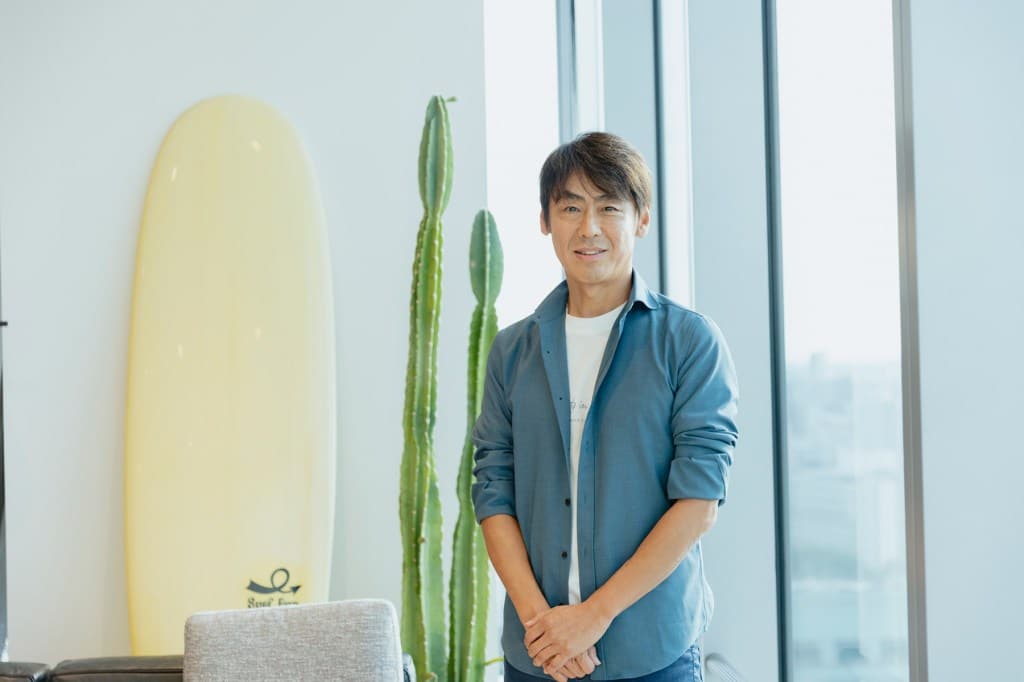
Trending on Billboard
In 2025, Universal Music Japan‘s president and CEO, Naoshi Fujikura, was chosen for inclusion in Billboard‘s Global Power Players list for a fifth consecutive time, making this his sixth appearance. In this year’s interview, he talked about the potential that Universal Music companies in other countries see in the Japanese market, the challenges Japan faces, and hits from artists such as Mrs. GREEN APPLE and Fujii Kaze.
According to IFPI, master recording revenue rose worldwide in 2024 for the 10th consecutive year, but in Japan it fell from last year’s level. This was due to declines in CD album and music video sales that weren’t made up for by digital sales. How do you feel about this?
To start off with, the fact that the global music market has grown for ten consecutive years is not something to be taken for granted. It’s a wonderful achievement. In 2025, the amount of growth in some of the more developed markets was slower, but the number of subscribers in China grew materially. I think it’s wonderful that we’re seeing continuous worldwide growth, even if the rate of growth varies by country.
People have pointed out that Japan has been slow to adopt streaming, but attending global conferences, what I’ve seen is that people aren’t looking at the Japanese market as some sort of anomalous far-Eastern market, but instead they’ve started talking about it as a business model that offers valuable insights for the rest of the world. In many countries, streaming is the main revenue source, and companies are competing for market share, but in Japan, physical accounts for 60% of revenue. Streaming co-exists alongside this. So the situation isn’t gloomy, we have also been cultivating a superfan culture for many years. Looking at our artist roster, Mrs. GREEN APPLE is the first artist in Japan whose songs have broken a total of 10 billion streams, but their best hits album, 10, sold over 770,000 copies in its first week. timelesz, who gained a massive buzz from their auditions program ‘timlesz AUDITION PROJECT’ on Netflix and sold roughly 650,000 copies of their album FAM in its first week. I don’t think you can make the sweeping generalization that Japan has been slow in shifting to digital media.
Another of the pressing issues facing Japan is strengthening its exports. According to the “Export Power” ranking announced by Luminate, in 2024 the No. 1 country was the U.S., followed by the U.K. at No. 2, Canada at No. 3, and South Korea at No. 4. Japan was ranked in 14th place. What difficulties do you think Japan faces with respect to exports?
I think there has traditionally been a lack of resources and experience in marketing to overseas audiences. There aren’t enough people who can share great artists or pieces of music in an appealing way, using language that resonates with the local markets. We have few experiences of success in creating overseas hits, and I think we need to be more ambitious. But what’s really important is to present songs and artists with universal appeal that transcends language barriers. I think if we do that, it will fling open the door for us. We believe it is only a matter of time though for more Japanese artists to break through globally, and at UMJ we are already turning this into reality with artists like Fujii Kaze, Ado and others.
Ado appeared in a Billboard US’ podcast, and has also been covered in several articles, right?
In 2025, Ado went on a tour of 33 countries, bringing a total of over 500,000 people to her shows. Her merchandise is also extremely popular, so her influence on the industry is incalculable. Thanks to the movie ONE PIECE FILM RED, she crossed the language barrier to be an artist that people around the world wanted to hear in person at least once. At her overseas shows, almost all of the audiences were made up of local fans. That impressed on me the fact that global success could be seen not only in winning awards or taking top positions in the charts, but also through this kind of success.
Right, it can be another kind of record for artists to aim for. On the topic of awards, they’ve announced that the MUSIC AWARDS JAPAN will be held again in 2026.
We’ve worked with Japanese artists, like Joe Hisaishi, Tomoyasu Hotei, Perfume, and MIYAVI, on their overseas activities. I’m glad to see how the Japanese music industry is coming together now, across company and organization lines, to hold these awards, even receiving government support. The other day, in New York, I met with the representatives of Universal Music Group in different countries, and one of our colleagues from Germany was surprised that this idea became a reality.
When the winner of the Artist of the Year award was announced, you could be seen cheering behind Mrs. GREEN APPLE.
I’d actually been watching from the balcony at first. But as the announcement of different winners went on, Mrs. GREEN APPLE’s name wasn’t coming up, so I started to get worried. So when there was a break, I knew I just couldn’t stay up there in the balcony, and I moved near the band. When they announced that Mrs. GREEN APPLE won, I was so surprised and overjoyed that I sprang out of my seat. It was apparently caught on camera. The results are determined by voting, so I couldn’t even guess who might win until right before the results were announced. All that worry just made my happiness all the greater.
The smile on your face, and the look of relief on the faces of everyone in the band, was really striking. This year Mrs. GREEN APPLE and Fujii Kaze are making big stirs in the charts. In addition to putting out new releases for five straight months, Mrs. GREEN APPLE’s been getting a lot of mass media exposure through an NHK TV series and through movies. Fujii Kaze released a hit album that’s entirely in English. These two artists are using totally different approaches, but they’ve both created hits. What are your feelings on that?
Fujikura: There’s something that Motoki Ohmori and Fujii Kaze both have in common, which is that they both want to sing where they’re needed. That’s what motivates them. I’m always telling employees to maximize the value of artists.
As a result of that, for Fujii Kaze, instead of us in Japan approaching overseas labels, we had multiple labels approaching Fujii Kaze and asking to work with him, which led to an agreement being signed.
In September, Fujii Kaze’s Prema, which is all in English, became a hit with sales of around 200,000 copies. His songs are also all getting heavy streaming plays. It’s been a wonderful success. One of the issues in Japan is a decline in the number of people who listen to international music. I think it’s really significant how he’s opened up a new market, and I’m looking forward to seeing where he goes in the future.
Fujii Kaze has a lot of fans outside Japan, in Southeast Asia. Was a lot of attention paid to these overseas markets when promoting the new album?
When “Hachikō” was released on streaming, we held an event, but we held it in Thailand, not Japan. That led to it being shared not only in Thailand but around the world. In the past, not being in Japan on the day of a song’s release would have been unthinkable. But with this many fans now accessible around the world, where you need to be and what you need to do to generate excitement has changed.
We’re already in the second half of the year. What do you think it will be like?
I may be repeating myself from previous years, but without good artists, you can’t generate excitement, and you can’t create hit songs. So it’s important not to just get caught up in techniques and monetization. At the heart of it all, you have to have great artists and great music. I want to keep maintaining that philosophy moving forward, as well.
—This interview by Seiji Isozaki and Naoko Takashima first appeared on Billboard Japan

 State Champ Radio
State Champ Radio 
